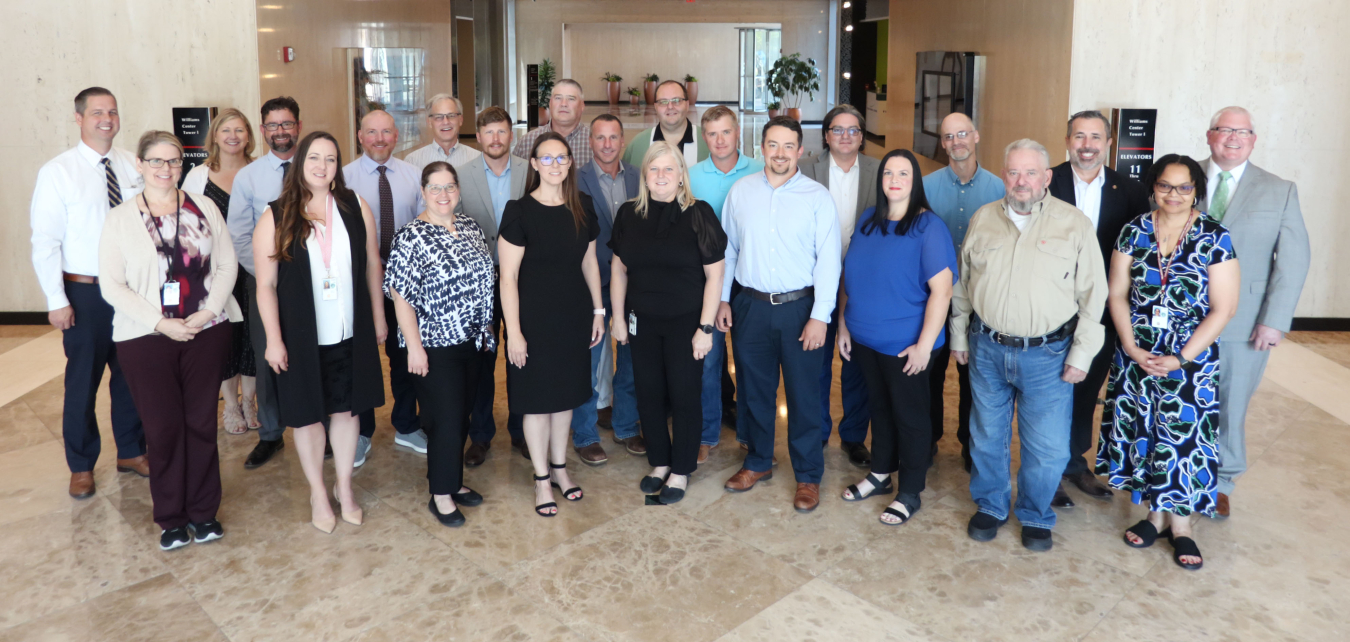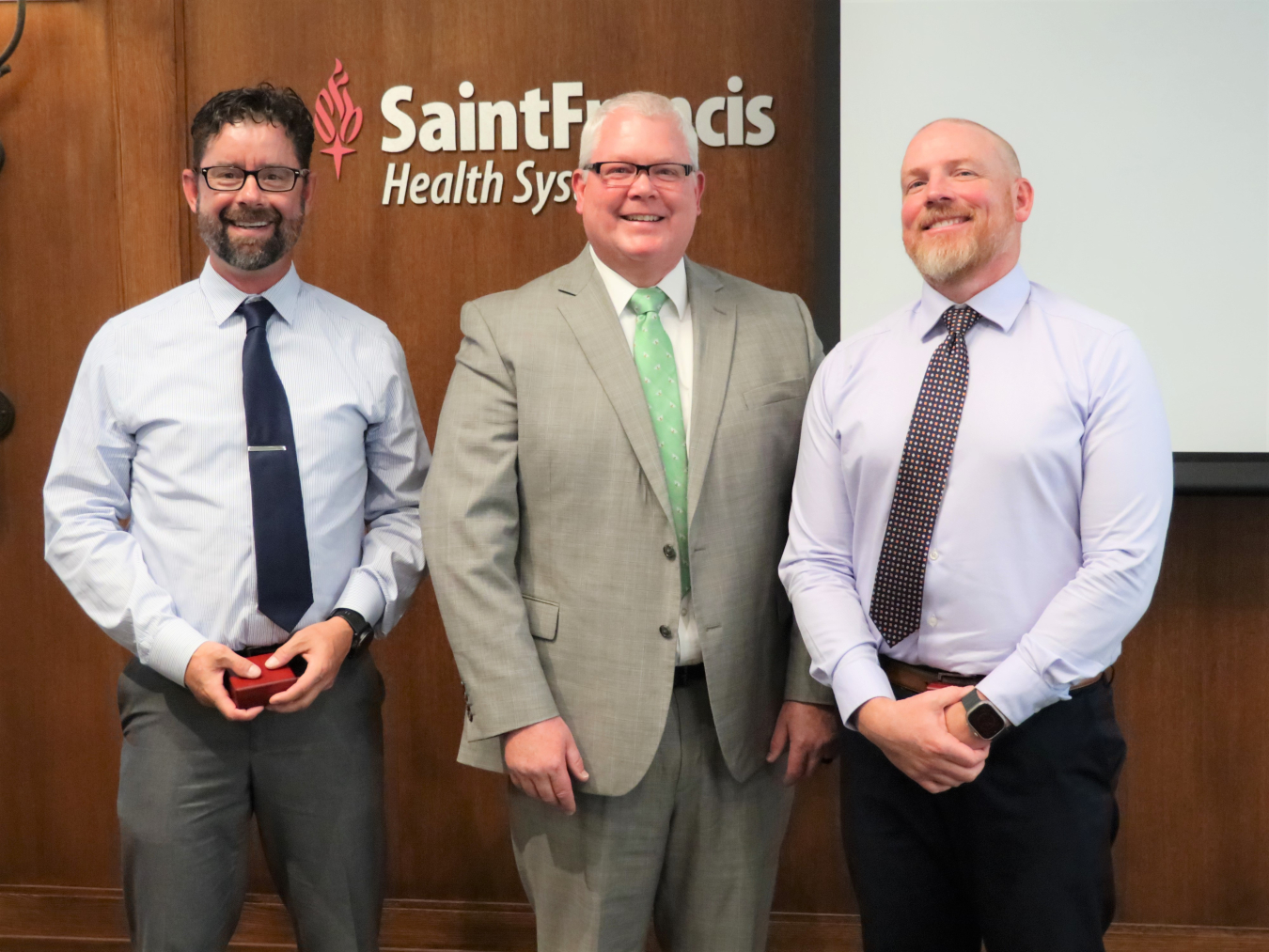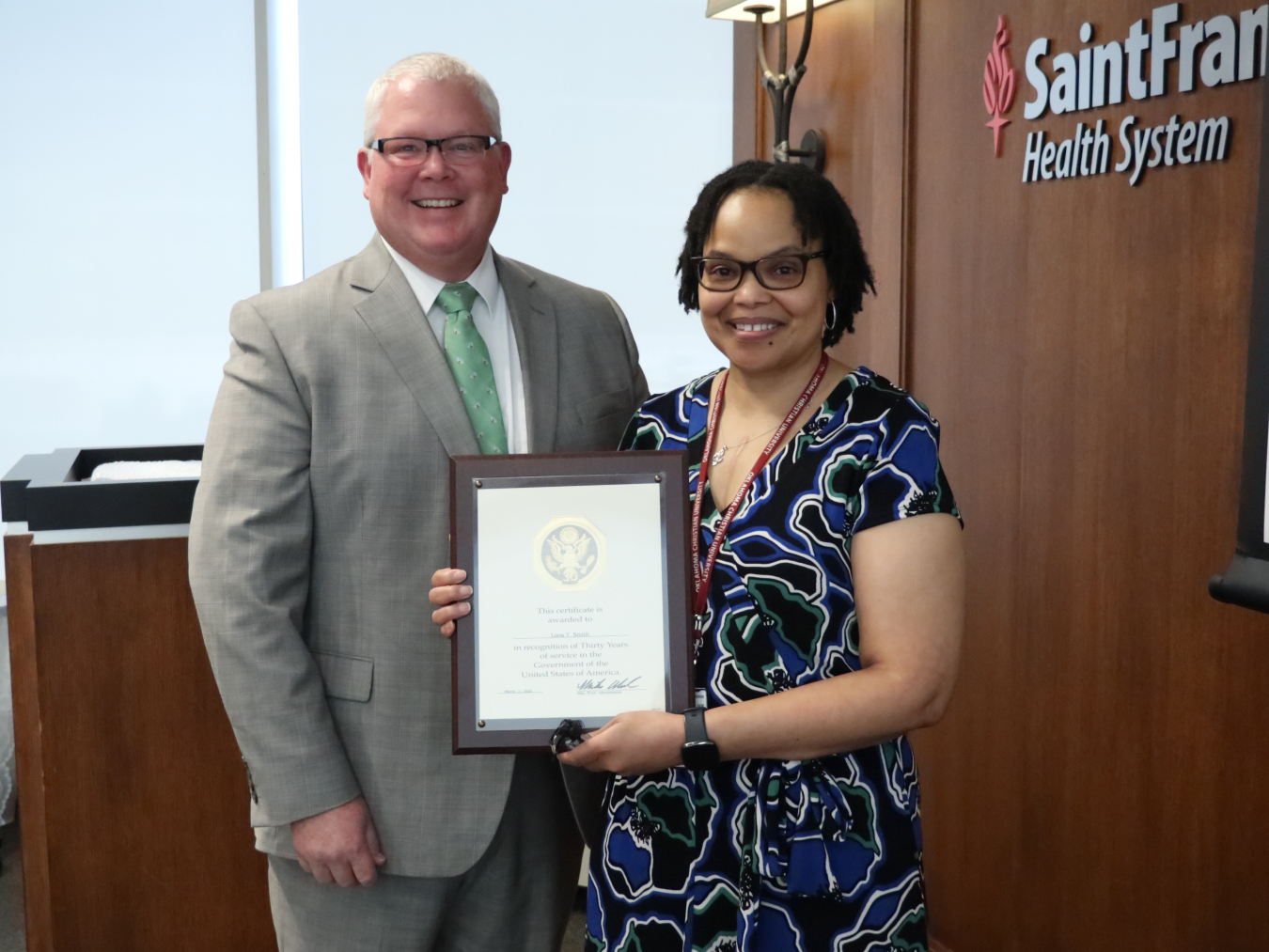Southwestern Power Administration (Southwestern or SWPA) celebrated its 2023 class of leaders in the Leadership Development Program with a graduation and awards ceremony on July 26, 2023. During the ceremony, graduates were honored with a leadership plaqu
Southwestern Power Administration
August 30, 2023


Southwestern Power Administration (Southwestern or SWPA) celebrated its 2023 class of leaders in the Leadership Development Program with a graduation and awards ceremony on July 26, 2023. During the ceremony, graduates were honored with a leadership plaque and a Southwestern Administrator's Coin Award. Program organizers were recognized with an Administrator’s Coin Award.
While some Southwestern employees have previously participated in the Department of Energy’s Leadership Development Program, this internal program was designed specifically to grow future leaders within the agency itself, with lessons and workshops that align with initiatives within Southwestern’s strategic plan.
Lona Smith, Management and Program Analyst in the Office of the Administrator, and coordinator of the Leadership Development Program, explained that participants completed a 10-month program that included classroom workshops, e-Learning coursework, mentoring sessions, peer group assignments, and coaching sessions.
“Southwestern enlisted the help of facilitators Jesse Chervinka, Human Resource Specialist from the Power Marketing Administration Human Resources Shared Service Center (PMA HR SSC), and Joseph Hose, Employee Engagement Specialist from the Department of Energy Office of Talent Management, to coach and engage the program participants,” Smith says. “Outside vendors were also enlisted to facilitate lessons such as the Strength Finder and Emotional Intelligence workshop.”
A few of the program participants - Angela Wheat, Program Analyst in the Division of Reliability Compliance; Nathan Tackett, Public Utilities Specialist in the Division of Power Marketing and Transmission Strategy; and Francis Romans, Information Technology Specialist in the Division of Information Technology – join Smith in highlighting some of their experiences in the Leadership Development Program.
Taking in Lessons Learned
When asked to share an important lesson learned, participant Angela Wheat explains that active listening skills were part of a lesson that she will always remember.
“In one session, we talked about how active listening is often about the other person feeling heard,” Wheat says. “My mentor offered a tip for when I feel the need to interject something into the conversation during meetings. You should ask: ‘Does what I want to say move the meeting forward?’ If not, then don’t say it now. You can always follow up later. This moves your focus back to listening and makes for more effective meetings.”
Nathan Tackett says he will never forget the lesson on the importance of relationships. “One key factor in leadership is the ability to navigate the differences in individual relationships throughout the working environment,” Tackett says. “Understanding strengths, leadership styles, and respecting each other helps build trusting and positive working relationships.”
Collaborating as a Group for Agency Improvement
As part of the program, participants were tasked with a larger project to complete together in groups.
“As a final project for the course,” Smith explains, “peer groups had to complete a concept paper and presentation for Senior Staff that was centered around a workforce development improvement, program, idea, or approach that they feel is missing at Southwestern.”
A common theme of networking and sharing emerged as participants worked on their group projects.
Wheat’s group decided on a plan for employees to meet. “We proposed recurring, optional employee networking opportunities to create or maintain peer relationships, learn how each division contributes to Southwestern’s mission, and see the various work environments,” she says. “It can be both a refresher for long-time employees and an introduction for new hires.”
Romans adds that his group also worked well together on the networking idea. “All of us shared a passion for our project,” he says. “Our idea was a networking event program called NOW (Networking and Outreach Workshops) that would help employees establish and strengthen relationships while learning how each of us, and each division, supports Southwestern’s mission. Basically, it is a way to connect and engage with one another to learn what each of us does, how and why we do it, and how we can help contribute towards those efforts to be more successful.”
Tackett’s group also zeroed in on the networking need. “The project that my peer group worked on was based upon the idea of making connections within Southwestern a possibility,” he explains. “Utilizing cross-training, job-shadowing, and annual events to gather Southwestern employees can help build relationships between co-workers and broaden experience and knowledge about the industry.”
Working with Mentors
Participants also had the chance to match up with a Southwestern leader for mentorship, which some found daunting at first.
“The idea of mentorship was intimidating at first,” Wheat says. “The knowledge gap between us seemed so large that I didn’t know what to ask in our first meeting. But we started talking about things we found challenging in our positions, and my mentor told me about tools and techniques the mentor uses to deal with similar situations. I left each mentoring session with lots of notes and insights, and it was very rewarding. Honestly, I’m still a little intimidated, but now I have some tools and techniques for dealing with that.”
Romans says he had not worked with a mentor before and did not know what to expect. “I didn’t really know what to do or say, and I’m not known for filtering, so I may have come off a little crazy at first,” he explains. “I tend to share whatever I think about something.”
With guidance from a fellow employee and his mentor, he narrowed down the area he wanted to work on during his mentorship. “My no-filter approach wasn’t really working, and it was very frustrating for me,” he says. “But in discussing the situation with a peer in the leadership class, I was able to find a solution. My peer gave me a list of questions that a mentee should ask his mentor, and this really helped me to focus on specific areas in later sessions with my mentor. I picked out the questions that I thought were relevant to my specific areas of concern, and it really paid off, with me receiving some great advice on how to handle people and situations.”
Tackett says he also appreciated the responses given to his inquiries during his mentorship. “The mentorship aspect of the leadership development program was a vital tool for me to discuss the program, ideas, topics of interests, and future plans with a senior leader of the agency who has the experience and expertise to provide some insightful and well-respected responses.”
Planning for Future Leaders
Smith says that the program was a great success, with many compliments from both the participants and the facilitators, and she confirms that the program will continue in the future, with opportunities for more future leaders at Southwestern.

